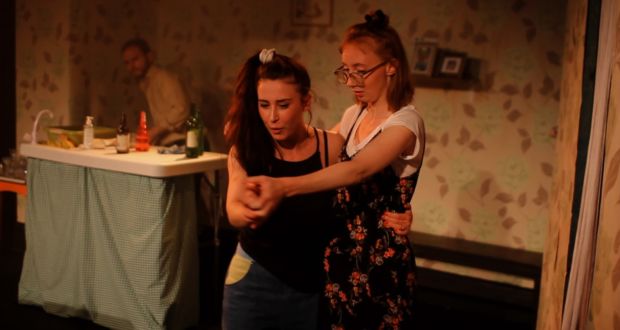Pros: Tremendous performances from the female leads, and excellent the sets and costumes contribute to an excellent atmosphere.
Cons: The raging, violent scenes aren’t half as impactful as the more subtle ones. A haunting piece of theatre on human behavior that will stay with you.
Summary
Rating
Excellent
You may be tempted, at the beginning of the show, to make assumptions about who is ‘good’ and who is ‘bad’ – but don’t. This play has incredible depth, and no one is who they seem to be on the surface. Everyone’s a monster, but everyone has reasons for why they act the way they act, why they are the way they are. The twists and turns towards the end are majestic.
The leading ladies are both outstanding. Rebecca Calienda is a terrific May: this woman has layers. She’s frustrating, unsympathetic – and yet moves from being a cruel, despised character to a heartbreakingly sad one in a matter of minutes in the closing scene. To play someone with that many layers and motives isn’t easy, but Calienda does it well. Similarly, Anna Brochmann is wonderful as the seemingly naive Flo. Her wide-eyed take on the world and good nature are initially charming, but this is a character with a terrifying depth – and the scenes in which her true, horrifying, nature is exposed are excellent.
There are no bad eggs in this production – Daniel Chrisostomou as Will, Rosalyn Mitchell as Hope and Sam Landon as Chase also do very well with their subject matter and it’s worth mentioning that there is an actor (Graham Rollason as Sam) who spends the entire play groaning from inside a cupboard. He does this rather well, as far as groaning inside a cupboard is concerned.
The set design is evocative: tired, dull wallpaper lines the walls and mismatched rugs are scattered across the floor. The costuming is very well done too. Everyone is dressed as they should be for the time period and location, although, worryingly, they could all walk out into Dalston after the performance and look perfectly at home there as well.
There are, however, some bits that could be improved upon. The scenes of pure rage and yelling are done well for what they are, but this play thrives on subtle heartbreak, longing and a sense of duty. The violence is meant to indicate a breaking point, but these explosions don’t even come close to the emotional depth and despair that comes from the inability to bring truth to the surface, which lingers in the subtler scenes. There’s also a moment that involves human ashes being ingested, which seems so out of character with the rest of the play and inadvertently made this writer physically gag on seeing it.
This is a good production. It’s also a hard one: there are no good guys and bad guys, and personal heartbreak is at the bottom of every motive, every behavior, every silent or not-so-silent scream of frustration. It’s a strong insight into the tragedy of these poor creatures and it will, inevitably, stay with you long after you walk out of the theatre and into the fresh air.
Author: David Moburg
Director: Annie Tanton
Producer: Tennessee Theatre Company
Booking Information: This show has now completed its run.
 Everything Theatre Reviews, interviews and news for theatre lovers, London and beyond
Everything Theatre Reviews, interviews and news for theatre lovers, London and beyond



